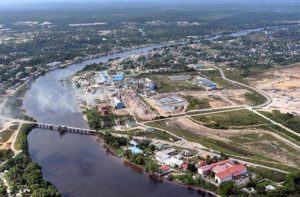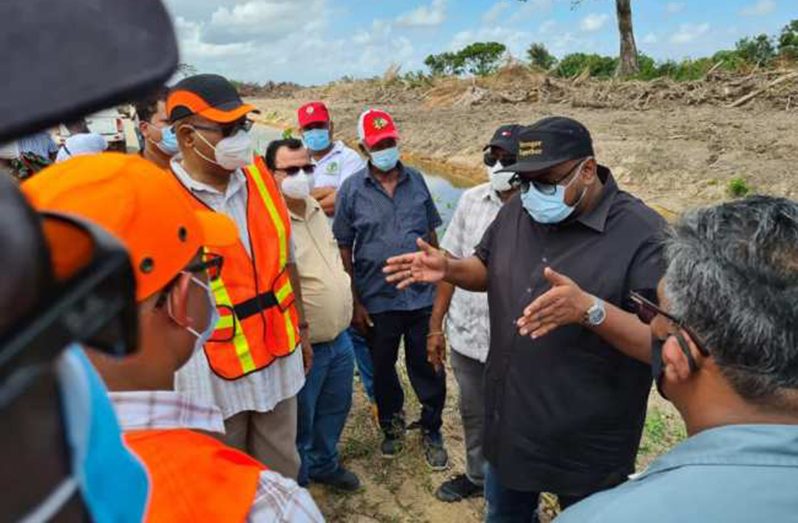–says President Ali, assures Guyanese that development will not be centralised
AS part of efforts to advance development in Regions Three (Essequibo Islands- West Demerara) and Four (Demerara-Mahaica), new legislation to incentivise investments will be presented to the National Assembly shortly, according to President Dr. Irfaan Ali.
In his address to the nation on the occasion of Guyana’s 55th Independence Anniversary, President Ali highlighted: “If independence is to have any real meaning, it is to uplift our people from the ravages and limitations of the past, and to give them a better life with better opportunities under better circumstances.”
To this end, the President related that the government is pursuing a multi-faceted developmental plan aimed at improving Guyana’s economy, infrastructure and human capital.
Importantly, he reminded Guyanese of the government’s plan to establish a new city to add to Georgetown, and to create several new population centres around Guyana.
Though these efforts will be countrywide, the President, in an interview aired on the News- Room, said benefits and incentives will be provided to investors in Regions Three and Four.
“To support the development of the new city [which is expected to be in Region Four] and what will take place in Region Three, we are going to definitely be tabling two specific legislations that will grant specific investment benefits and incentives for investments in those areas,” the President said during that interview.

He explained that these laws will be tabled shortly and will lead to an incentive regime that is expected to formalise investments in these two regions.
Already, these two regions have been earmarked for greater development. Region Three is expected to become a hub of oil and gas support services, due to its proximity to the capital city and the Demerara River. President Ali also noted that manufacturing and agro-processing activities are expected to intensify in this region, as well. Meanwhile, in Region Four, new road networks are expected to bolster the development of new population centres. Generally, the President in his Independence Day address, reminded Guyanese that the manufacturing, agricultural and other sectors have been affected in the past by the high price of energy. “Our private-sector partners have rightly pointed to the adverse effects of this high price to the cost of doing business and to their capacity to market their goods abroad competitively, earning revenues in foreign exchange for the benefit of the country,” he said, emphasising: “Your government will respond to this situation.” Reducing the cost of electricity has been a manifesto promise of the PPP/C government and President Ali said previously that the government would be making efforts to utilise the natural gas from offshore Guyana through a gas-to-shore project. This will result in lower electricity costs and a cleaner fuel output. To this end, the President said: “We cannot be a nation that produces oil and gas, earning considerable sums from it without passing on the benefits to all sectors of our society. The cost of electricity must be reduced for both business and household consumption.” He later added: “Our financial resources must be utilised to improve the quality of life for all our communities.”
DEVELOPMENT ACROSS GUYANA
These developments are by no means limited to the coastal regions. Region 10 (Upper Demerara-Upper Berbice), the President said, is seen as the gateway to the hinterland, largely due to the Linden to Lethem access road.
While addressing developments carded for this region, the President highlighted: “We are working tremendously on making Region 10 the frontier for the hinterland [where] all the mechanical electrical engineering services that [are] critical for the mining sector, can be serviced from Region 10.”
Creating this frontier is also a crucial component in realising the goal of making Guyana a transhipment point for Brazil, utilising the same Linden to Lethem Road. The government has also been eyeing investors in the bauxite sector of Region 10.
While development is carded for the populated regions, the President said that a massive hinterland-expansion programme is expected to advance infrastructural works and the development of agricultural and tourism activities.



.jpg)










